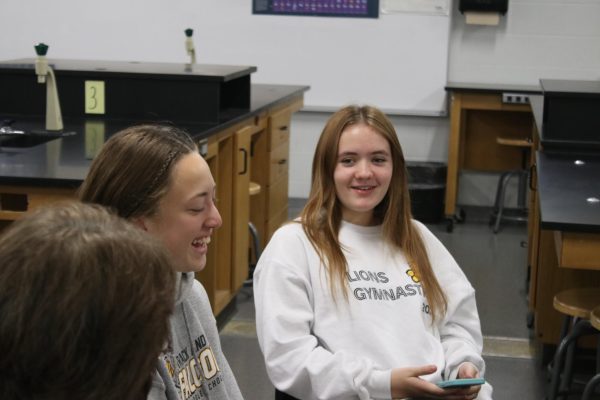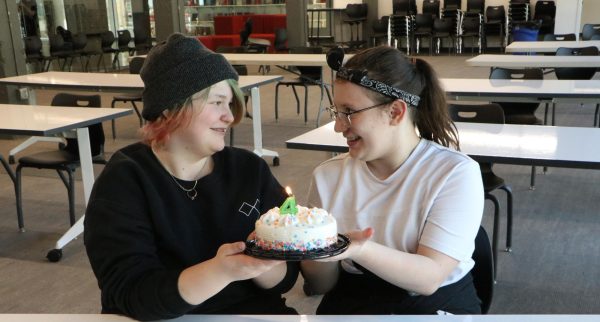Weighing the problem
Math teachers, students discuss impact tests have on grades
Figuring it out — When students sit down for math tests, their grade is on the line. Tests in math classes at LHS make up 75 to 90 percent of grades. “Math is a lot of work,” senior Caleb Hogan said. “It’s just a lot of work you have to do everyday and you have to be dedicated.”
April 20, 2018
As the school year has progressed and math classes have turned up the heat in terms of difficulty, many students have raised concerns over heavy weightings on test performance and, particularly, the math department policy that prohibits test retakes.
“[Allowing retakes] would honestly help a lot of kids, because if they make a few mistakes, it could make a big dent in their grade, and if it’s a bigger test, it could be the difference between failing and passing,” said junior Braden Augustine.
Math department policy, according to department chair Greg Farley, outlines that assignments comprise anywhere from 10 to 25 percent of a student’s grade while assessments make up anywhere from 75 to 90 percent of a student’s grade, depending on the class. Test retakes are not allowed.
“Assessments are weighted more because they are done in a classroom setting by the individual student. Assignments are weighted less partly because they are graded for completion,” Farley said. “It’s too much homework to grade problem-by-problem for correctness, and, as we learn, we should be OK making some mistakes and then realizing how to fix them before the assessment.”
According to Farley, this is standard practice.
“From the three districts I talked to last summer, it’s very much in line with what they’re doing,” he said. “From what they were telling me, their percents fall in line with what we’re doing.”
Even some, like junior Anna Chieu, the only non-senior enrolled in Matthew Ellis’ second hour AP Calculus BC course, believe that the department policy focuses too heavily on test performance.
“I don’t think [tests] should be valued as much because the scores kind of don’t show how people work and understand math,” Chieu said.
In 2016, 31.5 percent of Lawrence High students scored at Level 3 or Level 4 on the Kansas State Math Assessment, well above the state average of 24.18 percent, according to the Kansas Department of Education. In 2017, 36.78 percent of LHS students scored at such levels, while the state average was just 24.34 percent. While it is difficult to deduce whether test performance is tied to department policies, it is important to acknowledge that Lawrence High performs well above average compared to the rest of the state on many math competency tests.
“I think [our policy is] a fair assessment because the students have to demonstrate, individually, what they learned as opposed to assignments, which in today’s digital world, you can take a picture of a math problem and get an answer,” Farley said. “That’s not the students learning. That’s digital.”
Student opinions on department policies seem to reveal an underlying emphasis on what grade is achieved rather than the quality of learning in math classes.
“I’ve seen some kids mess up, and they really need a retake, and it could really help their grade, but the teacher’s policy prevents it,” Augustine said.
Although commonplace in middle school settings, test retakes are very uncommon in high school math education, according to Farley. However, mastery quizzes, something allowed in the LHS math department, give students a chance to boost their grades.
“The department policy is there are no test retakes. Now, we do have mastery quizzes in a large proportion of our classes,” Farley said. “What a mastery quiz is, they can retake it essentially as many times as they want up until the deadline, assuming that they’ve done their homework and that they make that mastery quiz up before or after school. But they can take it three, four, five, six times to get the mastery quiz score, which is 100 percent.”


























